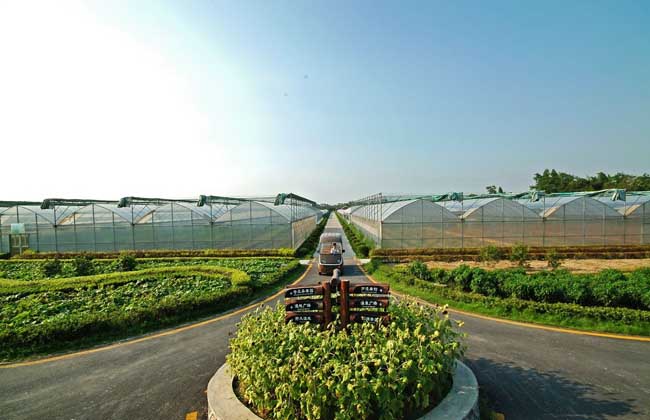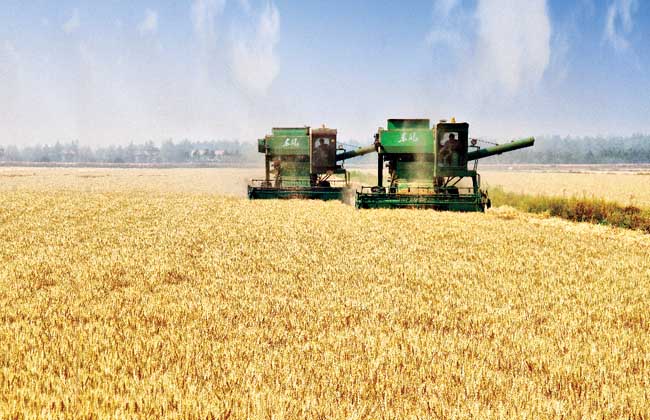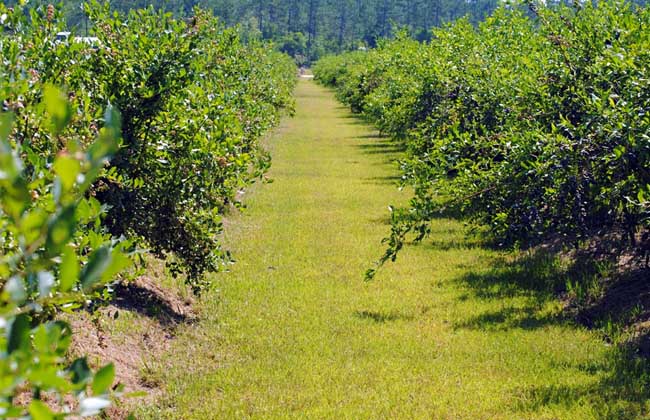Development Prospect of Ecological Agriculture

Ecological agriculture is an effective way to solve the contradiction among population, resources and environment in our country, which realizes the unity of economic, ecological and social benefits, and is the inevitable choice for the sustainable development of agriculture and rural economy. at present, although China has made great achievements in theoretical research, experimental demonstration, popularization and popularization of ecological agriculture, it can not be denied that there are still some problems. These problems are becoming obstacles to the further development of ecological agriculture.
Development Prospect of Ecological Agriculture
The production of ecological agriculture takes the sustainable utilization of resources and the protection of ecological environment as the important premise, according to the principles of coordinated adaptation of biology and environment, optimal combination of species, efficient operation of energy and materials, balance of input and output, etc., using the method of system engineering, relying on the input of modern science and technology and socio-economic information to organize production, through rational use and proliferation of agricultural natural resources Attach importance to improving the utilization rate of solar energy and the conversion efficiency of biological energy, give full play to the advantages of resource potential and species diversity, establish a benign material cycle system, promote the sustained and stable development of agriculture, and realize the unity of economic, social and ecological benefits. Therefore, ecological agriculture is a knowledge-intensive modern agricultural system and a new model of agricultural development.
Development characteristics of Ecological Agriculture
1. Comprehensiveness: eco-agriculture emphasizes giving full play to the overall function of the agro-ecosystem, taking large-scale agriculture as the starting point, comprehensively planning, adjusting and optimizing the agricultural structure in accordance with the principle of "integrity, coordination, circulation and regeneration". Enable the comprehensive development of agriculture, forestry, animal husbandry, sideline, fishery and rural primary, secondary and tertiary industries, and enable them to support each other, complement each other, and improve comprehensive production capacity.
2. Diversity: in view of China's vast territory and great differences in natural conditions, resource base, economic and social development, eco-agriculture fully absorbs the essence of China's traditional agriculture and combines modern science and technology. equip agricultural production with a variety of ecological models, ecological engineering and rich and colorful technology types, so that all regions can make full use of their strengths and avoid weaknesses and give full play to their regional advantages. All industries develop harmoniously with the local reality according to the social needs.
3. High efficiency: through multi-level comprehensive utilization and serialized deep processing of material circulation and energy, ecological agriculture can achieve economic value-added, implement resource utilization of waste, reduce agricultural costs and improve efficiency, create internal employment opportunities for a large number of surplus labor force in rural areas, and protect farmers' enthusiasm to engage in agriculture.
4. Sustainability: the development of ecological agriculture can protect and improve the ecological environment, prevent pollution, maintain ecological balance, improve the safety of agricultural products, change the conventional development of agriculture and rural economy into sustainable development, closely combine environmental construction with economic development, while meeting people's growing demand for agricultural products to the maximum extent, improve the stability and sustainability of the ecosystem and enhance the staying power of agricultural development.
Development status of Ecological Agriculture
1. The theoretical basis is not complete: eco-agriculture is a complex system engineering, which needs the support of many disciplines, including agronomy, forestry, animal husbandry, aquaculture, ecology, resource science, environmental science, processing technology and social sciences. Previous studies are often single-disciplinary, so they may have a certain or even in-depth understanding of some aspect of this complex system, but little is known about the interaction between these aspects. Therefore, it is necessary to make a more in-depth study of ecological agriculture from a systematic and comprehensive point of view, especially the coupling law between elements, optimal design of structure, scientific classification system and objective evaluation methods. This kind of research should be established on the basis of in-depth investigation and analysis of the existing eco-agricultural models, must go beyond the boundaries between biology, ecology, social sciences and economics, and should be the intersection and synthesis of multi-disciplines. it needs the joint participation of experts from various disciplines and the need to establish its own theoretical system of ecological agriculture.
2. The technical system is not perfect: in an eco-agricultural system, it often contains a variety of components, and there is a very complex relationship between these components. For example, in order to raise ducks in fish ponds, it is necessary to consider the number of ducks, and the number of ducks will be restricted by the exchange rate of water, the volume of the pond, the quality of the body, the type and quantity of fish, the water temperature, the age and size of ducks, and many other conditions. In general, farmers do not have enough theoretical knowledge and experience to scientifically design this composite system, but simply copy the experience of another place, which is very difficult and often can not be successful. However, at present, there is still a lack of research on technical measures in the practice of ecological agriculture, including not only how to develop traditional technology, but also how to introduce high and new technology.
3. The policy is not perfect: without the support of the government, it is impossible for ecological agriculture to be truly popularized and developed. With the support of the government, the most important thing is to establish an effective policy incentive mechanism and security system. Although the current rural economic reform in China is very successful, there are still many areas worthy of improvement for the implementation of the eco-agricultural policy. In some places, due to policy reasons, farmers can not effectively protect land, water and other resources.
4. The influence of the price of agricultural products: the price of agricultural products sometimes becomes a limiting factor for the development of ecological agriculture, because for the poorer population, the security of food may be more important, but for those farmers who are better off, higher economic benefits may become the basic driving force to stimulate them to engage in ecological agriculture.
5. The influence of service and technology: for the development of ecological agriculture, service and technology are equally important. However, an effective service system has not yet been established, and in some places, it is impossible to provide farmers with high-quality varieties, seedlings, fertilizers, technical support, credit and information services. For example, credit services are very important for the development of eco-agriculture in many places, because for farmers engaged in eco-agriculture, profits may not be available until a few years after the implementation of the project. Credit services are naturally essential. In addition, information service is also an important aspect that restricts the development of ecological agriculture, because effective information service will be very beneficial for farmers to adjust their production structure in time to meet market requirements and obtain higher economic benefits.
Related
- A course of planting techniques and methods on how to grow carrots
- How to plant the latest tulips?
- Is it better to pick tea in the morning or in the afternoon? When is the best time for tea to be picked? what is the third or fifth tea?
- Launch Yuanxiao Happy combination Haocha + Tea Yuan healthy Taste
- Penghu Tourism "Fireworks 20 Parade with You"
- 2022 West Lake Happiness holds "Digital Revitalization Voucher" and draws iphone13 and laptop.
- Banqiao Fuzhou social houses are designed to change start-up combined with police elimination to create a safe and livable environment
- The convenient measure of "mechanical weeding" in Xinbei has been abused and the Agriculture Bureau has imposed heavy penalties on the illegal land consolidation.
- Changgeng University Joins Hands with Four Memory Factories to Rescue Memory Talent Shortage
- The list of Taiwan's top 100 MVP managers is listed by the Director-General of the Farmers' Association of Sanxia District.



